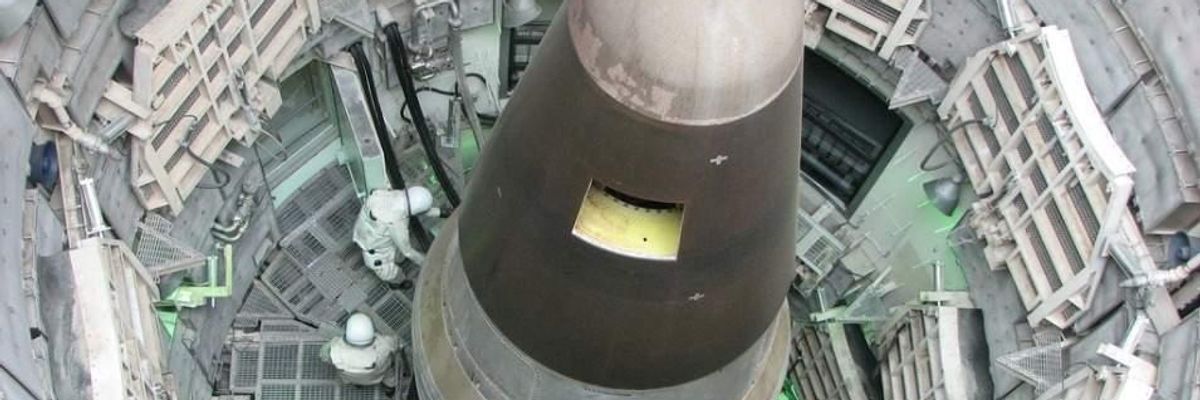As the Trump administration barrels ahead with its aggressive nuclear agenda that includes dumping billions of dollars into upgrading the 150 B61 bombs positioned in Europe, a new report argues that these weapons are essentially useless as deterrents and a potentially "catastrophic" security threat.
Authored by the arms control advocacy group Nuclear Threat Initiative (NTI) and viewed by the Guardian for the first time on Thursday, the report (pdf) highlights with alarm the Trump administration's decision to move ahead with efforts to "modernize" the B61 nukes in an effort to make them more accurate and versatile, which analysts worry will "increase the risk of nuclear use in a crisis."
These weapons--many of which are currently positioned just 70 miles from the Syrian border--also "increase the risk of accidents, blunders, or catastrophic terrorism and invite preemption," NTI's analysis notes. "Given these added risks, it is past time to revisit whether these forward-based weapons are essential for military deterrence and political reassurance."
Despite the perilous possibilities outlined by NTI and other experts, Trump is moving quickly to loosen constraints on the use of nuclear weapons, a decision several world leaders denounced earlier this month as a "dangerous" step that moves "humankind closer to annihilation."
In addition to heightening the risk of a devastating nuclear accident and even all-out war, modernizing the B61 nukes--a process that would replace the Cold War relic with the B61-12, "the U.S. arsenal's first guided nuclear gravity bomb"--would also come at an enormous financial cost.
"The cost of maintaining and modernizing U.S. nuclear forces is projected to cost $400 billion during the next 10 years and more than $1.2 trillion across 30 years," NTI notes. "Production of the B61-12 has already been delayed three years and has more than doubled in cost to nearly $10 billion."
President Donald Trump's aggressive push to expand America's nuclear arsenal comes at a time of soaring tensions between the U.S. and North Korea. Peace groups have warned repeatedly over the past several months that if diplomacy isn't pursued immediately, a "nuclear nightmare" could quickly break out.
Speaking with the Guardian on Thursday, nuclear physicist and former U.S. energy secretary Ernest Moniz echoed these concerns and said the possibility that a nuke could be deployed "is higher than it's been since the Cuban missile crisis."
"We know we've had those warnings many times in history and we've managed so far to dodge the bullet," Moniz, who is also the CEO and co-chairman of NTI, added. "But dodging the bullets is more difficult when there's not significant communications going on and a lot of tensions between the countries."
